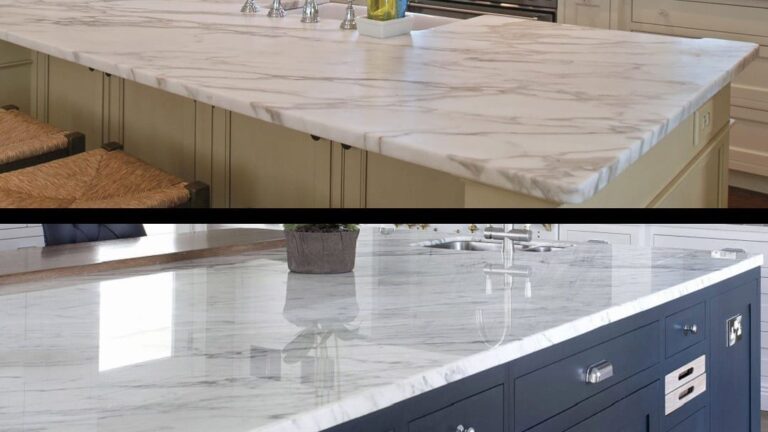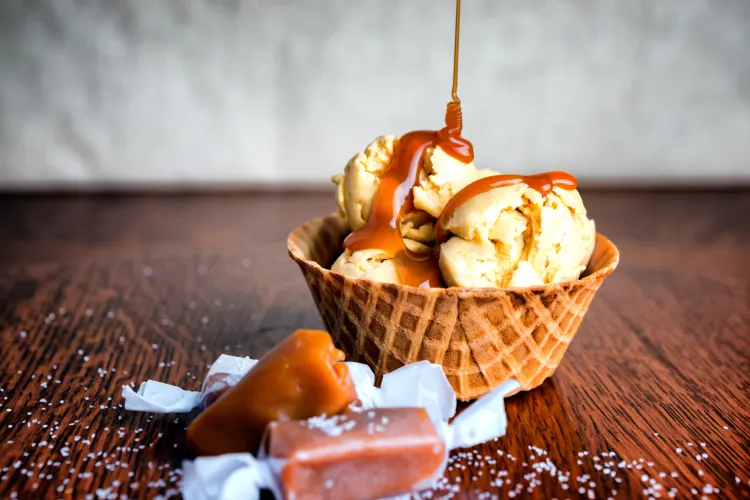
Introduction
When it comes to selecting a worktop material for your kitchen, the choice often narrows down to three popular options: quartzite, granite, and marble. Each of these natural stones brings its unique set of features, benefits, and aesthetic appeal, making the decision a challenging one for homeowners. In this comprehensive guide, we will delve into the distinct characteristics of quartzite, granite, and marble worktops, compare their advantages and disadvantages, and help you determine which material best suits your kitchen needs.
Quartzite Worktops
Appearance
Quartzite is a metamorphic rock that originates from sandstone. Through a natural process involving high heat and pressure, the sandstone transforms into quartzite, creating a durable and visually appealing material. One of the most striking features of quartzite is its marble-like appearance, characterized by intricate veining patterns that can add a touch of elegance to any kitchen. Unlike marble, however, quartzite is available in a broader spectrum of colors, including white, gray, and various earthy tones, providing versatile design options.
Durability
Quartzite is renowned for its exceptional hardness and durability, making it an ideal choice for high-traffic kitchens. It is significantly harder than both marble and granite, scoring around 7 on the Mohs hardness scale (compared to granite’s 6-7 and marble’s 3-5). This inherent toughness makes quartzite highly resistant to scratches, chipping, and other forms of wear and tear. Additionally, quartzite is heat-resistant, allowing you to place hot pots and pans on its surface without worrying about damage.
Maintenance
While quartzite is a robust material, it does require some maintenance to preserve its beauty and functionality. Sealing the surface periodically is essential to prevent staining, as quartzite can be somewhat porous. However, once sealed, quartzite is relatively low maintenance, requiring only regular cleaning with mild soap and water. It is also advisable to avoid abrasive cleaners and harsh chemicals, which can damage the sealant and the stone.
Granite Worktops
Appearance
Granite is an igneous rock formed from cooled magma, composed mainly of quartz and feldspar with traces of other minerals. This natural composition gives granite its characteristic speckled appearance, which can vary widely in color and pattern. Granite offers an extensive range of design options, from subtle hues to vibrant colors, making it a popular choice for homeowners seeking to match their kitchen’s aesthetic. Each granite slab is unique, ensuring a one-of-a-kind look for your worktop.
Durability
Granite is known for its impressive durability, making it a suitable option for busy kitchens. Like quartzite, granite is highly resistant to scratches, heat, and general wear and tear. Its robust nature means it can withstand the demands of daily use, from cutting and chopping to handling hot cookware. However, granite’s durability does not come at the cost of its appearance; it maintains its lustrous finish for years with proper care.
Maintenance
To keep granite looking its best, regular sealing is necessary. The frequency of sealing depends on the specific type of granite and the amount of use it gets, but generally, a sealant application once a year is sufficient. Granite’s porosity can vary, with some types being more prone to staining than others. Daily maintenance involves wiping down the surface with a soft cloth and mild detergent. Like quartzite, it is best to avoid using abrasive cleaners or harsh chemicals on granite surfaces.
Marble Worktops
Appearance
Marble is a metamorphic rock formed from limestone that has been subjected to intense heat and pressure. It is celebrated for its luxurious and classic appearance, featuring distinctive veining patterns that can range from subtle to dramatic. The timeless beauty of marble has made it a favored material in high-end kitchens and bathrooms. Marble is typically available in shades of white, gray, and beige, though rarer varieties can feature other colors such as green, pink, and black.
Durability
While marble is undoubtedly beautiful, it is softer and more porous than both quartzite and granite. This makes it more susceptible to scratches, stains, and etching from acidic substances like lemon juice or vinegar. Marble’s softness means it requires a gentler touch in the kitchen, and it is less suited for high-traffic areas or heavy-duty use. However, with careful maintenance and the right protective measures, marble can still serve as a functional and stunning worktop material.
Maintenance
Maintaining marble worktops involves a higher level of care compared to quartzite and granite. Regular sealing is crucial to protect marble from stains and etching. Depending on the type of marble and usage, sealing might be needed every few months. Daily cleaning should be done with a pH-neutral cleaner to avoid damaging the surface. Additionally, using cutting boards, trivets, and coasters can help minimize the risk of scratches and stains, preserving marble’s pristine appearance.
Comparative Analysis
Cost
The cost of quartzite, granite, and marble worktops can vary based on factors such as quality, rarity, and source of the stone. Generally, marble tends to be the most expensive option due to its luxurious appeal and limited availability of certain varieties. Quartzite is typically priced in the mid-to-high range, reflecting its durability and marble-like appearance. Granite is often the most affordable option, though high-end granite varieties can be quite expensive.
Durability
When it comes to durability, quartzite stands out as the most robust material. Its hardness and resistance to heat and scratches make it ideal for kitchens that see a lot of activity. Granite follows closely, offering excellent durability with slightly more variation in hardness depending on the specific type. Marble, while beautiful, is the least durable of the three, requiring more careful handling to prevent damage.
Maintenance
In terms of maintenance, quartzite and granite are relatively low-maintenance compared to marble. Both materials require periodic sealing to prevent staining but are otherwise easy to clean with mild soap and water. Marble, on the other hand, demands more frequent sealing and gentle cleaning practices to avoid etching and staining. Homeowners who prefer minimal upkeep may find Quartzite worktops more appealing.
Choosing the Right Material
For Durability
If durability is your primary concern, quartzite is the best choice for high-traffic kitchens. Its exceptional hardness and resistance to scratches and heat make it a reliable and long-lasting option.
For Aesthetics
For those who prioritize aesthetics and are willing to invest in maintenance, marble offers unparalleled beauty. Its luxurious appearance and distinctive veining can elevate the look of any kitchen, making it a statement piece.
For Variety
Granite is the go-to option for homeowners seeking variety. With its extensive range of colors and patterns, granite provides ample design possibilities to match any kitchen style.
Conclusion
Choosing between quartzite, granite, and marble worktops ultimately depends on your specific needs, preferences, and lifestyle. Each material has its unique strengths and weaknesses, and understanding these differences can help you make an informed decision. Quartzite offers the best durability, making it suitable for high-traffic kitchens. Marble provides timeless beauty but requires more maintenance and careful handling. Granite strikes a balance between durability and variety, offering a wide range of design options at a generally affordable price.
Consider the durability, maintenance, and aesthetic appeal of each material to determine which worktop is right for you. By making an informed choice, you can enhance your kitchen’s functionality and beauty, ensuring that your worktop serves as a stunning and practical centerpiece for years to come.
Publication collaboration has been facilitated through= jamesoliver.advertising@gmail.com



